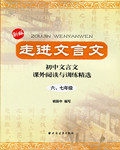题目内容
【题目】Owning a smartphone may not be as smart as you think. It may let you surf the Internet, listen to music and snap photos wherever you are... but it also turns you into a workaholic, it seems.
A study suggests that, by giving you access to emails at all times, the all-singing, all-dancing mobilephone adds as much as two hours to your working day. Researchers found that Britons work an additional 460 hours a year on average as they are able to respond to emails on their mobiles.
The study by technology retailer Pixmania reveals the average UK working day is between 9 and 10 hours, but a further two hours is spent responding to or sending work emails, or making work calls. More than 90 percent of office workers have email-enabled phones, with a third accessing them more than 20 times a day. Almost one in ten admits spending up to three hours outside their normal working day checking work emails. Some workers confess they are on call almost 24 hours a day, with nine out of ten saying they make work emails and calls outside their normal working hours. The average time for first checking emails is between 6 am and 7 am, with more than a third checking their first emails in this period, and a quarter checking them between 11 pm and midnight.
Ghadi Hobeika, marketing director of Pixmania, said, “The ability to access literally millions of apps, keep in contact via social networks and take photos and video as well as text and call has made smartphones invaluable for many people. However, there are drawbacks. Many companies expect their employees to be on call 24 hours a day, seven days a week, and smartphones mean that people literally cannot get away from work. The more constantly in contact we become, the more is expected of us in a work capacity. “
【1】Which of the following is true according to the text?
A. The average UK working time is between nine and twelve hours.
B. Nine-tenths spend over three hours checking work emails.
C. One-fourth check their first mail between 11 pm and midnight.
D. The average time for first checking emails is between 6 am and 8 am.
【2】The underlined word “accessing” in the third paragraph can be replaced by “ “.
A. calling B. using C. reaching D. getting
【3】What can we conclude from the text?
A. Every coin has two sides
B. It never rains but pours.
C. All that glitters is not gold..
D. It’s no good crying over spilt milk.
【4】What’s the main idea of the text?
A. Workaholics like smartphones.
B. Employers don’t like smartphones.
C. Smartphones make our life easier.
D. Smartphones bring about extra work.
【答案】
【1】C
【2】B
【3】A
【4】D
【解析】
试题分析:本文主要讲述虽然智能手机能让你无论在哪里,都能上网、 听音乐和拍照,但它也会让你变成一个工作狂。列举了一些科学研究和科学家的言论来说明。
【1】 细节理解题。排除法。选项A,从文中第三段.the average UK working day is between 9 and 10 hours英国人平均的工作时间是每天9到10个小时。故A错误;选项B,从文章第三段Almost one in ten admits spending up to three hours outside their normal working day checking work emails.几乎十分之一的人承认花费超出工作时间三个小时来检查工作邮件,故B错误;选项D,从文中第三段The average time for first checking emails is between 6 am and 7 am, 检查电子邮件的平均时间是6点和7点之间,故D错误。而选项C,从文中第三段a quarter checking them between 11 pm and midnight.四分之一的人检查邮件在11点到午夜12点。故选C。
【2】词汇理解题。从文中第三段More than 90 percent of office workers have email-enabled phones, with a third accessing them more than 20 times a day.超过90%的办公室职员已经有能够接受邮件的手机,他们中有三分之一一天使用超过20多次。access原意是接近,利用;结合上下文也可判断它在这里的含义,应为使用手机查看电子邮件,与文章内容相符。故选B。
【3】主旨分析题。从文中第一段作者提出手机除了给你带来很多便利之外,也能使你成为工作狂,接着作者例举研究:办公室职员们除了一天的固定工作时间外,还要另外花费2到3个小时来查看工作邮件;Ghadi Hobeika ,指出“智能手机意味着人们不能离开工作。我们愈经常接触的越多,就越期待我们的工作能力。”因此可以得出,智能手机有优点,有缺点,即每件事物都有两面性,故选A。
【4】主旨理解题。结合全文,作者例举的研究:办公室职员们除了一天的固定工作时间外,还要另外花费2到3个小时来查看工作邮件;以及Ghadi Hobeika ,指出“智能手机意味着人们不能离开工作。我们愈经常接触的越多,就越期待我们的工作能力,故可知本文主要告诉我们智能手机给我们带来了很多额外工作。故选D。

 走进文言文系列答案
走进文言文系列答案